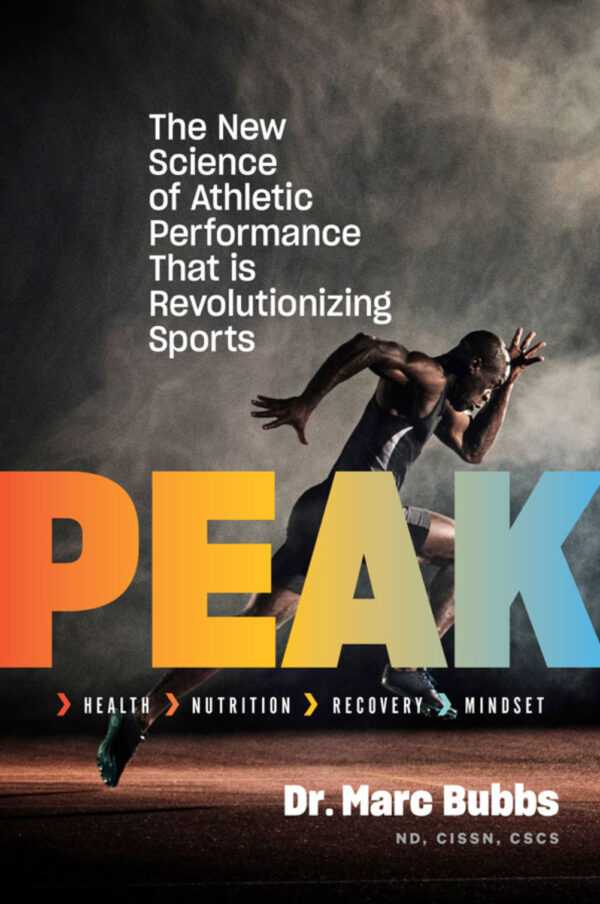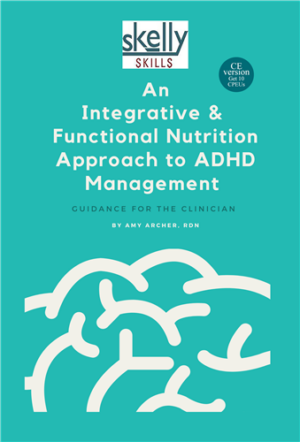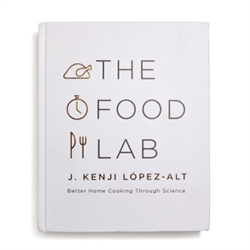

From: $155.00
Brand new! More athletes and weekend warriors are looking to optimize their performance using customized nutrition, training and recovery. This groundbreaking book explores the fundamentals of high performance. Go beyond fads and get the cutting-edge, evidence-based information that will truly revolutionize your client’s health and performance.
This course is CDR-approved for 26 CPEU for RD/RDNs and DTR/NDTRs, and CBDCE-approved for 26 CEU for CDCES’s.
CPEU/CEU: 26
Course Expiration Date: 12/07/2026. You have until that date to complete your CPEU Evaluation or Webinar Feedback Survey for this course.
Course Type: 720—Preapproved Self-Study Materials, Printed.
Includes CE Evaluation/Reporting Form: You will submit it online and receive your CE Certificate immediately.
Suggested Learning Level: 2
Help your athlete clients, weekend warriors and fitness novices alike with this comprehensive guide to fueling for peak performance. Learn how to truly personalize all aspects of your client’s training, performance and recovery and watch them reap the results!
Features:
Published 2019, 375 pages. See the LNCs & PIs tab for suggested learning codes.
CPEU/CEU: 26 NOTE: Course Expiration Date: 12/07/2026. You have until that date to complete your CPEU Evaluation or Webinar Feedback Survey for this course.
1.1.1 Participates and documents engagement in professional development activities to maintain and enhance competence.
1.1.2 Pursues and embraces opportunities to advance practice.
1.1.5 Integrates new knowledge and skills into practice.
2.1.1 Assesses the communication needs of individuals, groups and populations to provide effective communication.
2.2.3 Delivers accurate and credible messaging.
4.1 Demonstrates sound professional judgement and strategic thinking in practice.
4.1.1 Demonstrates effective problem solving and professional judgment to address needs.
4.1.2 Interprets and integrates evidence-based research and literature in decision-making.
4.1.3 Identifies misinformation and inaccurate information in order to inform decision-making.
4.2 Exercises critical thinking when faced with opportunities and challenges.
4.2.2 Reflects on own values, beliefs and biases.
4.2.3 Demonstrates insight concerning personal expertise and limitations.
4.2.5 Analyzes and synthesizes information and identifies new information, patterns and findings.
4.2.6 Integrates relevant information with previous learning, experience, professional knowledge, and current practice models.
4.2.8 Evaluates the effectiveness of plans and decisions and make adjustments when needed.
6.1.1 Identifies gaps in evidence to determine research priorities.
6.1.2 Uses established benchmarking to inform practice.
6.1.4 Defines and establishes appropriate research methodology approaches (e.g. quantitative and qualitative methods).
6.2.3 Analyzes and interprets data to form valid conclusions and to make recommendations.
6.3.1 Accurately and ethically shares research findings with a variety of audiences.
6.3.2 Utilizes innovative ways to disseminate research findings considering the target audiences.
6.4.2 Demonstrates serious inquiry, examination, and experimentation aimed at the discovery and interpretation of knowledge, or the revision of guidelines, theories, policies or laws.
6.8.1 Masters and maintains current and evidence-based knowledge within subject areas.
7.2.1 Applies knowledge of biological, environmental, physical or chemical properties that may cause food and water to be unsafe for human consumption.
8.1 Interprets and applies current food and nutrition science in nutrition and dietetics practice.
8.1.1 Interprets and applies evidence-based comparative standards for determining nutritional needs.
8.1.2 Applies knowledge of food and nutrition as well as the biological, physical and social sciences in practice.
8.1.4 Integrates knowledge of macro- and micronutrients for
digestion, absorption and metabolism throughout the lifespan
in practice.
8.1.5 Applies medical nutrition therapy in disease prevention and management.
8.2 Applies current knowledge and skill in the management of a variety of diseases and clinical conditions.
8.2.1 Assesses the physical, social and cultural needs of the individual, group, community or population.
8.2.2 Applies knowledge of health determinants when planning, developing and implementing services, programs, meal plans and menus.
8.2.3 Analyzes new information and how it impacts medical nutrition therapy.
8.2.4 Integrates new knowledge of disease states and clinical conditions into practice.
8.3 Applies the required knowledge and skill for safe and effective sports nutrition and dietetics practice and exercise training.
8.3.1 Discusses with clients the Physical Activity (PA) Guidelines for Americans and the relationships between exercise, health, and disease prevention.
8.3.2 For RDNs who hold advanced certification in exercise physiology or sports dietetics, applies advanced principles from the PA Guidelines for Americans (e.g., intensity, frequency,
duration, overload, progression, specificity, METs, and METminutes).
8.3.3 Collects, analyzes, and interprets body composition fitness and exercise data to optimize physical performance.
8.3.5 Provides general physical activity guidance to clients based on the Physical Activity (PA) Guidelines for Americans.
8.3.6 Evaluates sport/dietary supplements (safety, legality, efficacy, quality, application to sport) and considers evidence-based reviews and testing by reputable third parties before recommending sports/dietary supplements.
8.3.7 Demonstrates an understanding of the ways in which progressive exercise training influences nutrition needs to support positive metabolic, structural, and immunological adaptations.
8.4 Critically evaluates the safety and efficacy of integrative and functional medicine approaches and interventions.
8.4.1 Gains an understanding of integrative and functional medicine models and interventions and how these models and interventions are applied to nutrition and dietetics service.
8.4.2 Critically evaluates the credibility of integrative and functional medicine research and literature, using evidence-based criteria, to respond to inquiries and to determine the appropriateness of incorporating these interventions into nutrition care plans.
8.4.3 Identifies research gaps to support conscious decision-making.
8.4.4 Identifies safety issues, risks, efficacies, benefits and limitations of interventions.
9.5 Evaluates the achieved learning and delivery methods when delivering education to individuals, groups and populations.
9.6.1 Assesses client/patient nutritional needs and appropriateness of the counseling.
10.2.1 Selects valid and reliable tools to conduct comprehensive nutrition assessments.
10.2.2 Interviews clients/patients and reviews health records to collect information about medical history and food and nutrition intake.
10.2.3 Collects information related to client/patient use of medications, dietary supplements and integrative and functional medicines to identify potential adverse drug and nutrient interaction.
10.2.4 Assesses client/patient physical activity levels to determine nutrition requirements.
10.2.6 Collects and analyzes anthropometric and body composition data to contribute to nutrition diagnoses.
10.3.1 Establishes goals and desired outcomes in collaboration with clients/patients.
10.3.4 Selects interventions intended to resolve or improve nutrition diagnoses.
10.3.6 Develops nutrition prescriptions to communicate clients’/patients’ customized diet and nutrition needs.
10.4.1 Identifies classifications of nutraceutical pharmacological agents and the action on the body.
10.4.3 Identifies potential food-nutrient drug interactions based on physiological responses to pharmacological agents and takes appropriate action.
10.4.4 Considers client/patient factors, nutritional impacts, indications, side effects, contraindications, benefits, risks, alternatives and foundational sciences when prescribing, recommending or administering nutrition-related drug therapy.
10.5.1 Reevaluates and adjusts plans of care to support client/patient health goals.
10.5.2 Monitors and identifies factors affecting client/patient progress in meeting goals.
10.5.3 Adjusts interventions based on client/patient progress in meeting established goals.
10.5.4 Establishes new goals and nutrition care plans when original or interim goals are met.
12.2.1 Identifies determinants of health and influences on population health status.
12.3.6 Prioritizes goals and objectives based on health problems and health problem changeability.
12.4.2 Applies knowledge of local and global food markets, food production systems and nutrition regulations.
Only logged in customers who have purchased this product may leave a review.
Skelly Skills is a provider of continuing education for dietitians (RD/RDNs), certified diabetes care and education specialists (CDCESs), registered nurses (RNs) and diet technicians, registered (DTR/NDTR). We provide CPE, (often called CEU, CE, and CPEU) for all of these groups, and all of our courses are approved for CE by the Commission on Dietetic Registration (CDR) and the CBDCE for CDCESs. Skelly Skills receives no commercial support and does not accept advertising or sponsorship of any kind.

CPEU/CEU: 10

CPEU/CEU: 45

CPEU/CEU: 21

CPEU/CEU: 20


Purchase your webinar and receive a link to the webinar immediately.
Watch your webinar and then submit the CE Feedback Survey form by the course expiration date.
After submitting your CE Feedback Survey, you will be able to download your CPEU/CEU certificate as a pdf and keep for your records.

We use cookies to ensure you get the best experience. By using our website or clicking "accept", you consent to cookies.
Georgie Fear, RD, CSSD, Sports Nutritionist and Author –
This is an excellent course and I look forward to recommending it! – Georgie Fear, RD, CSSD, Sports Nutritionist and author of Lean Habits for Lifelong Weight Loss
Clare McDaniel, MS, RDN, CSSD, CLT, Sports Dietitian Consultant –
I love this coursevery comprehensive with enough detail to really be helpful! – Clare McDaniel, MS, RDN, CSSD, CLT, Sports Dietitian Consultant and university swimming coach, Denver, CO